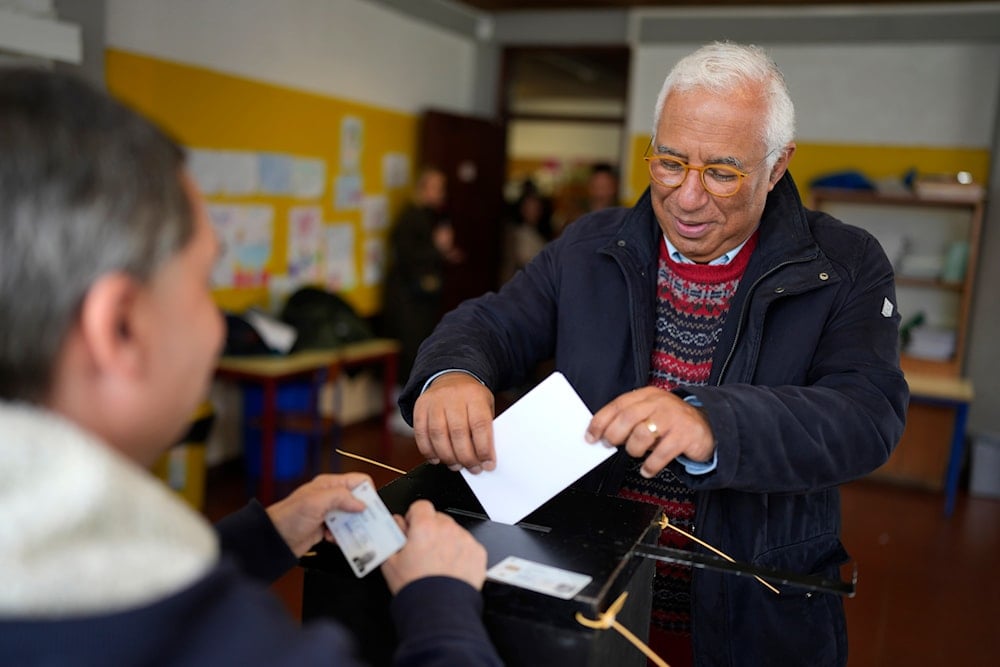Portugal launches general elections, results expected at midnight
Polling stations opened at 8 a.m (0800 GMT) and will close at 7 p.m in mainland Portugal and an hour later on the Azores archipelago.
-

Portuguese caretaker Prime Minister Antonio Costa casts his ballot at a polling station in Lisbon, on Sunday, March 10, 2024.(AP)
Portuguese voters went to the polls today, to either opt for a switch towards a center-right government or to secure the center-left already in power, however, it seems like both sides do not have a full majority so far.
Polling stations launched at 8 a.m. (0800 GMT) and close at 7 p.m. in mainland Portugal and an hour later on the Azores archipelago, with the results predicted to be out around midnight. It is important to note that the country's electorate includes more than 10 million people.
The current main problems in Portugal include a difficult housing crisis, low wages, sinking healthcare, and corruption, with many labeling it as endemic to the mainstream parties.
The elections chronicle
Four months following the socialist Prime Minister Antonio Costa's abrupt resignation during a "graft investigation", this election pushed the two centrist parties in Portugal, the Socialist Party (PS) and the Social Democratic Party (PSD), to a battlefield once again.
The Democratic Alliance, which forms Montenegro's Social Democratic Party and two smaller conservative parties, takes the majority in most opinion polls, however, it could face hurdles in ruling if it does not obtain Chega's supporting votes, according to Reuters.
It is noteworthy that Montenegro has so far crossed out any deals with the radical populists, who are aiming for a government role.
The ruling Socialist Democratic Party, currently led by Pedro Nuno Santos following Costa's resignation, will possibly try to rekindle their old alliances with the Left Bloc and the Communists that enabled them to govern between 2015 and 2019 if the allied left wins more than 115 seats in the 230-seat parliament, Reuters further reported.
Surveys predict support for Chega's anti-establishment message, its promises to end corruption, and hostility to what it believes is "excessive immigration", has "roughly doubled" since the last election in 2022, even though it is still in third place.
Biased Presidency & Political Opinions
On March 8, conservative President Marcelo Rebelo de Sousa told Expresso newspaper he would do everything in his means to stop Chega from winning, which in turn triggered backlash as the presidency should remain impartial.
Political scientist Antonio Costa Pinto of Lisbon University said that Portugal "has entered the dynamic of many European democracies", referring that the center-right is struggling with having a radical party to its right integrated into third place.
A possible Democratic Alliance minority government, even backed by the smaller center-right Liberal Initiative, would potentially require votes from Chega to pass legislation, which makes it weak as this means that Chega could overturn it at any point.
However, "a PS victory with an absolute right-wing majority in parliament would be the most complex, most unstable scenario," Costa Pinto explained.

 3 Min Read
3 Min Read








